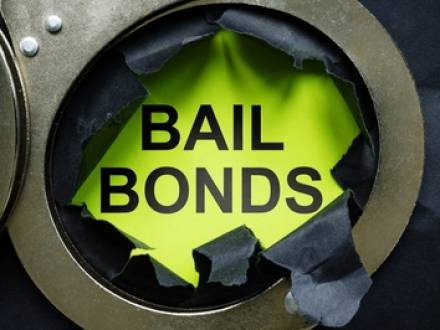Understanding Texas Bail Bonds
 If you are charged with a serious crime in Texas, you may want to be released on bail pending your trial. The Texas bail system ensures that the defendant shows up in court while allowing them to stay free before going to court.
If you are charged with a serious crime in Texas, you may want to be released on bail pending your trial. The Texas bail system ensures that the defendant shows up in court while allowing them to stay free before going to court.
The bail bond system is tricky, and making mistakes that can put you in jail is easy. An aggressive Texas criminal defense attorney can provide critical legal guidance to ensure you stay free as you await trial. Our attorneys are aggressive and tenacious, having won over 300 not-guilty verdicts and acquittals. We are prepared to assist with your bail and criminal case today.
How Do Texas Bail Bonds Work?
After you are arrested, the judge or magistrate will set a bail amount. This number is based on the crime’s severity, criminal history, flight risk, and the strength of your ties to the community. Bail is usually set within 48 hours of the arrest.
The types of bail are:
-
Cash bail: You or a family member pays the full amount of bail in cash to the court. If you attend all court appearances, the bail amount is refunded, minus court fees.
-
Surety bond: A bail bondsman posts the amount of bail for a fee, usually 10% to 20% of the total bail amount. Collateral may be necessary. For example, if your bail is $25,000, a bail bond agent may charge you a non-refundable fee of $2,500 or $5,000.
-
Personal recognizance (PR) bond: You are released without paying bail, based on your promise to appear in court. PR may be granted for a non-violent, low-risk offender with strong ties to the community. A 2021 law eliminated PR bonds for those charged with violent crimes, so this trend toward more stringent bail conditions makes a PR bond less likely for many defendants in Texas.
-
Property bond: Instead of cash, property, such as your home, is used to secure your release.
How a Criminal Defense Attorney Can Help With Bail Bonds
A skilled criminal defense lawyer can help in the bail process in several ways:
-
Request bail hearing: If your initial bail is too high or denied, your attorney may request a hearing to reduce the bail amount. Under Texas law, you are allowed to ask for a bail reduction.
-
Demonstrate mitigating factors: Your attorney can point out factors that indicate you are not a flight risk, such as a steady job, lack of criminal history, and strong ties to the city.
-
Challenge excessive bail: Excessive bail is prohibited in the Eighth Amendment. Also, the Texas Constitution guarantees the right to bail, except for some capital offenses. Your lawyer may argue that the bail is too high, given the circumstances.
-
Negotiate bail conditions: If bail conditions are too strict, your attorney can attempt to get them modified.
Hire a Collin County, TX Criminal Defense Attorney Now
Getting bail after being arrested ensures you can stay free pending your trial. The bail bond process can be complex and expensive without legal assistance. At The Crowder Law Firm, P.C., our Plano, TX criminal defense lawyers will fight to ensure that you receive bail and that the amount is fair. Call 214-544-0061 today for a free legal consultation about your bail case.
















